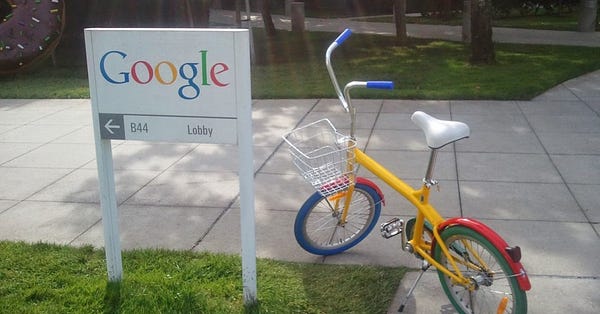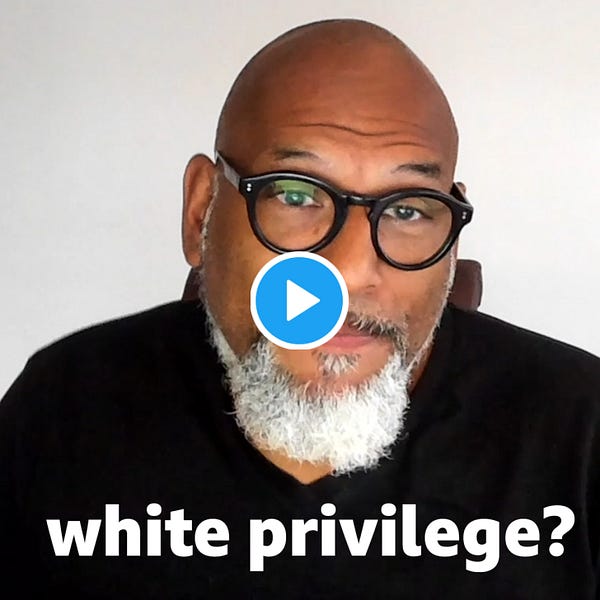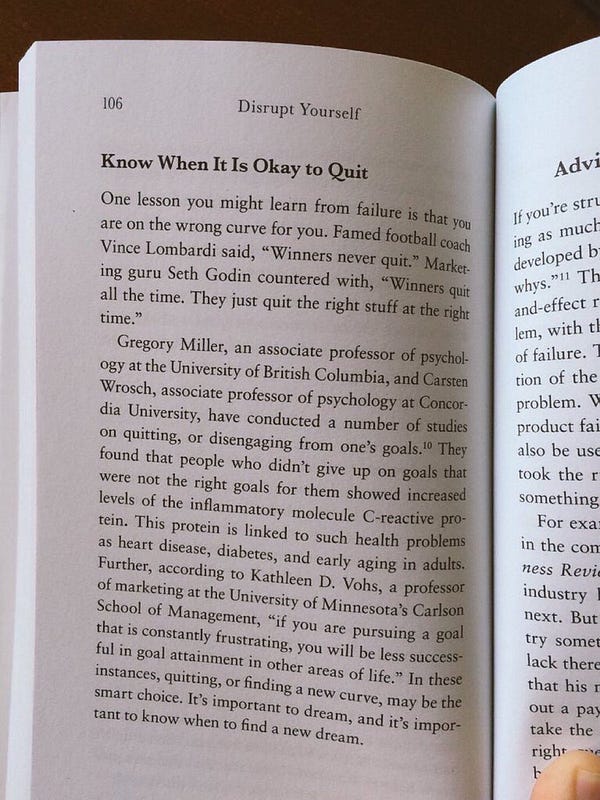Whatever Next #10: What defines a company? What is the Peter Principle? And white privilege?
Sharing thoughts about company people, promotion, mistakes, privileges, quitting, resilience, and some resources links. The tenth issue, thanks for reading! 🙂
Hi @ll! Welcome to my tenth newsletter! I hope you’re all safe in these uncertain times.
Ten may seem a low number, but it has been a challenge for me, and I am pleased about that. Ten newsletters sharing my interests with you, my humble knowledge pills.
This week I will be sharing a wrap up of my recent twitter activity, with topics like management, psychology, links to resources, and other curiosities. I hope it worth your time!
🏢 What defines a company?
Laszlo Bock shared this publishing from Ling Siow Chang, a former Google mate. He shared some interesting thoughts that I also wanted to share below.


The first thought that Ling shares are that the pandemic has been an equalizer for tech companies because it has stripped off most of its perks and benefits. Nowadays, it is very easy to see extensive perks in the tech job offer, but as we are staying at home, some of them have been disabled. Companies are closer, equal. What remains is the people and the company.
The second is the consequence of the first. In the post, he asks what defines the company because working from home has impacted our sense of belonging and identity. And Ling continues that it is not the company that makes the employees who they are but the employees that make it what it is.
That is certainly true. People make the company. But it is with the company's help, enabling culture and values, that it could remain this way and don't get lost during in time. This seems to have happened to Google:
I often fall into the trap of thinking of the company as an entity, as a person even. I know my contributions after a decade in Google. I have been fortunate to be with other colleagues that made Google the best place to work in Fortune's list from 2012 to 2017. It has been absent since then. The company doesn't remember me, even when I was here, as it has no institutional memory and no soul. Only people do. Value the individuals.
I remember reading this also from Tony Hsieh, from his LinkExchange experience. And that experience bring set the culture and values at Zappos. I also published a blog post about values based on this.
We believe that it’s really important to come up with core values that you can commit to. And by commit, we mean that you’re willing to hire and fire based on them. If you’re willing to do that, then you’re well on your way to building a company culture that is in line with the brand you want to build.
Excerpt from the book Delivering Happiness from Tony Hsieh
💼 The Peter Principle. About promoting the wrong people
The Peter principle is a concept in management developed by Laurence J. Peter, which observes that people in a hierarchy tend to rise to their "level of incompetence": employees are promoted based on their success in previous jobs until they reach a level at which they are no longer competent, as skills in one job do not necessarily translate to another. (Definition from Wikipedia).
What happens when we promote a person based on how is he doing in the current job and not based on the skills they need for the job? And what happens when you are promoting this person to a managerial position?
Your top performer people may not continue being at the top when you decide to change the work they know to do best. It is important to think about the tradeoffs before promotion, and it is a terrible idea to expect the same performance.
In the following short video, Kelly Shue, Ph.D. and Yale professor, talks about this problem.
If you’re interested, you could also read the complete HBR article with the research they did: Do People Really Get Promoted to Their Level of Incompetence?
✈️ Analyzing data in the Second World War
This is a great story about analyzing data in the wrong way. Sometimes people analyze the data thinking on the result they are looking for and not based on what data is telling. The story is set in the Second World War, but the learnings are up to date.
With the purpose to put extra armor to protect their planes better, they surveyed the bullet holes on the aircraft that had returned. What happened next? It is a concise thread, and I recommend you to check the story from the publisher.


⏱️ The most common mistake? They waited too long
Ed Batista is an executive coach whose clients are most CEOs. A CEO asked him the most common mistakes made by his clients, and he arrived at this reflection: They waited too long.
They waited too long to make decisions, invest in people's relationships, delegate work, and get serious about self-care, which he says is "investing in your business". There are many learnings from it that a business leader should take care of.


🛑 Brandolini’s law
I had never heard about Brandolini’s law: “The amount of energy needed to refute bullshit is an order of magnitude bigger than to produce it.”.
It turns out that Alberto Brandolini was a software engineer who presumably had to face or refute a large number of negative observations and opinions.
It is not a scientific theory, but based on experience, it sounds pretty accurate.


🤔 What means privilege? And what is white privilege?
This section and the video below is about understanding privileges. So before letting biases decide if it is interesting enough, I am going to make an introduction to the topic.
Privilege is the absence of inconvenience, impediment, or challenge. So when we are talking about somebody privileged, it is not an insult or accusation at all. It turns out that people can be from different social classes, economic levels, and can live with diseases or disabilities. Privileged people are not better or worse. I would say that they are fortunate to be it.
So the absence of inconveniences or impediments is what makes us privileged compared to others that suffer from them. And when we have it, when we are privileged, we don’t notice it. But when it’s absent, it could affect everything you do.
For instance, a person who lives with a wheelchair is affected by its disability in everything that does, and people barely know how hard it is. We could say that people who don’t need a wheelchair to live are privileged.
In the case of white privilege, it means that our skin color could bring privileges or absence of impediments when it is white compared to other tones. It is not fair, but I think we all agree that it is true. It happens. That doesn’t mean that white people haven’t hard lives. What it means is that your skin color is not the cause of your hardship or suffering.
The goal of the video is to understand the meaning of privilege, not as an accusation. And learn to embrace it, without rejection, without getting defensive. Ignoring it raises the chance to exclude people in ways that are not obvious.
Sure everybody has problems, maybe a hard life, challenging moments, but this is not what this is about. Having privileges doesn’t keep you away from life problems. But understanding the differences benefits us.
It helps us to understand why some people’s lives are harder than they should be, it helps us to be aware of it, helps us to be closer to people who are different from us, it helps us to treat others differently, and in general, having this in mind should help us to build a fairer and equal society.


💓 On resilience and quality of life
In the following post, John Ballard analyzes a 2016 article on resilience published in the journal Explore by Michael Aquilino.
Why is it that some people can take the difficult experiences of work and life and roll with them, even gain strength from them, while others are overwhelmed and deeply stressed?
In the post, you’ll find that Aquilino suggested that a significant factor in the quality of “one’s life experience” is resilience. And John makes some suggestions, inspired by it.
As John also shares, I would argue that resilience makes a difference in the quality of life in tough circumstances, both ours and others.


👋 Know When It's Ok to Quit
I saw by chance this tweet from Vala Afshar sharing a page from the book Disrupt Yourself, With a New Introduction: Master Relentless Change and Speed Up Your Learning Curve by Whitney Johnson, author, CEO, business thinker, Thinkers50.
Vala was sharing Seth Godin's answer Winners quit all the time. They just quit the right stuff at the right time, answering to famous football coach Vince Lombardi's quote Winners never quit. It was an excellent answer from Seth, setting the virtue in leaving at the right moment.
Besides, I also shared the following excerpt: "If you are pursuing a goal that is constantly frustrating, you will be less successful in goal attainment in other areas of life. In these instances, quitting would be the smart choice. It's important to dream, and it's important to know when to find a new dream.".
If you read the whole page, this results from research where they found that people who never give up on goals that were not the right goals showed an increase of an inflammatory protein linked to several diseases.
By the way, if you’re looking for a podcast to give a try, you would probably be interested to check Whitney’s Disrupt Yourself.
📚 Book and bloggers resources
In this newsletter, I am going to share three resource links.
The first one is Pat Kua’s blog post with book recommendations by Engineering Leaders. If you’re looking for book recommendations about Business and Product, Leadership, and Software engineering, you’ll find several ideas in this post. And also, you’ll find the original twitter thread that fed the post.
The second resource link is this twitter thread by Monica Lent, who was looking for tech blogs with a “distinct writing style” with a “unique personality voice”. Another resource full of good places to find interesting topics to read.

Last but not least is this entrepreneurship notion page, with a list of websites that could help promote your online business. Logology founder looked for websites where to publish and get users and also build SEO. He ended with a list of 100+ websites, Reddit subs, and slack communities, and decided to share with the world.
😞 Disappointment can kill
That research blew my mind. Winners live longer than people who finish in second place. It could make sense. But when analyzed with the Olympics, it turns out that people who finish in second place live less than the thirds.
So as the tweet states, disappointment can kill. Especially in competition. Maybe we should be taught more to celebrate any success and less to compete with others. Regarding life, it could help us to live longer!





In the thread, you’ll find the link to access the papers.
That’s it! Thanks for reading. I hope you liked it!
Please, do not hesitate to add any comments. I am open to any suggestions, so if you want to add a comment or contact me, I encourage you to do it.
If you found something interesting, maybe you would like to share it with your colleagues, friends, or family.
And if you haven’t subscribed yet, you could do it now. It’s completely free, and you could unsubscribe at any time.







